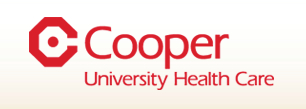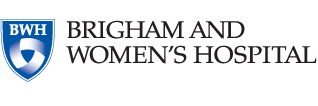Donor Stem Cell Transplant in Treating Patients With High-Risk Chronic Lymphocytic Leukemia or Small Lymphocytic Lymphoma
| Status: | Active, not recruiting |
|---|---|
| Conditions: | Blood Cancer, Lymphoma, Leukemia |
| Therapuetic Areas: | Oncology |
| Healthy: | No |
| Age Range: | 18 - 69 |
| Updated: | 2/8/2019 |
| Start Date: | February 2010 |
Phase II Study of Reduced-Intensity Allogeneic Stem Cell Transplant for High-Risk Chronic Lymphocytic Leukemia (CLL)
RATIONALE: Giving low doses of chemotherapy before a donor stem cell transplant helps stop
the growth of cancer cells. It may also stop the patient's immune system from rejecting the
donor's stem cells. Also, monoclonal antibodies, such as rituximab, can find cancer cells and
either kill them or deliver cancer-killing substances to them without harming normal cells.
The donated stem cells may replace the patient's immune cells and help destroy any remaining
cancer cells (graft-versus-tumor effect). Sometimes the transplanted cells from a donor can
also make an immune response against the body's normal cells. Giving tacrolimus, sirolimus,
and methotrexate after the transplant may stop this from happening.
PURPOSE: This phase II trial is studying how well donor stem cell transplant works in
treating patients with high-risk chronic lymphocytic leukemia or small lymphocytic lymphoma.
the growth of cancer cells. It may also stop the patient's immune system from rejecting the
donor's stem cells. Also, monoclonal antibodies, such as rituximab, can find cancer cells and
either kill them or deliver cancer-killing substances to them without harming normal cells.
The donated stem cells may replace the patient's immune cells and help destroy any remaining
cancer cells (graft-versus-tumor effect). Sometimes the transplanted cells from a donor can
also make an immune response against the body's normal cells. Giving tacrolimus, sirolimus,
and methotrexate after the transplant may stop this from happening.
PURPOSE: This phase II trial is studying how well donor stem cell transplant works in
treating patients with high-risk chronic lymphocytic leukemia or small lymphocytic lymphoma.
OBJECTIVES:
Primary
- To determine if this treatment can improve 2-year current progression-free survival
(PFS) in the early disease cohort compared to historical controls. Specifically, we plan
to study whether we can achieve 2-year PFS ≥ 70% and to exclude 2 year PFS ≤ 50%
Secondary
- To determine whether in the advanced disease cohort we can achieve 2-year current PFS ≥
50% and to exclude 2-year PFS ≤ 30%
- To assess objective response rate.
- To assess the incidence of grade 2-4 and 3-4 acute graft-vs-host disease (GVHD).
- To assess the incidence of extensive chronic GVHD.
- To assess the incidence of treatment-related mortality at 100 days and 1 year
- To assess overall survival
- To assess donor chimerism for CD3+ cells at 1 and 2 years after transplantation
- To investigate the presence of donor antigen-specific T-cell clones before and after
withdrawal of immune suppression.
- To compare the relapse profiles of patients with T-cell responses against CLL to those
whose CLL cells are not reactive
- To prospectively examine the impact of high-risk genomic features and immune-based
single nucleotide polymorphisms on response, toxicity, and 2-year PFS to reduced
intensity allogeneic stem cell transplant
OUTLINE: This is a multicenter study.
- Preparative regimen: Patients receive 1 of 2 preparative regimens at the discretion of
the participating institution.
- Preparative regimen 1: Patients receive rituximab IV on days -7, -1, 7, and 14 and
fludarabine phosphate IV over 30 minutes and busulfan IV over 3 hours on days -5 to
-2. .
- Preparative regimen 2: Patients receive rituximab IV on days -7, -1, 7, and 14,
fludarabine phosphate IV over 30 minutes on days -5 to -2, and cyclophosphamide IV
over 1-2 hours on days -5 to -3. Patients with matched unrelated donors also
receive anti-thymocyte globulin IV over 4-6 hours on days -6 to -4.
- Graft-vs-host disease (GVHD) prophylaxis: Patients who receive preparative regimen 1 may
receive either GVHD prophylaxis regimen 1 or 2; patients who receive preparative regimen
2 may only receive GVHD prophylaxis regimen 2.
- GVHD prophylaxis regimen 1: Patients receive tacrolimus either orally or IV and
oral sirolimus beginning on day -2 and continuing until day 60, followed by a taper
until day 180. Patients also receive methotrexate IV on days 1, 3, and 6.
- GVHD prophylaxis regimen 2: Patients receive tacrolimus either orally or IV
beginning on day -2 and continuing until day 60, followed by a taper until day 180.
Patients also receive methotrexate IV on days 1, 3, 6, and 11.
- Transplantation: Patients undergo allogeneic peripheral blood stem cell transplantation
on day 0.
- Maintenance therapy: Patients receive rituximab IV at 3, 6, 9, and 12 months after
transplantation.
Peripheral blood and bone marrow aspirate samples may be collected periodically for
correlative laboratory studies.
Patients are followed up periodically for a maximum of 5 years from study entry.
Primary
- To determine if this treatment can improve 2-year current progression-free survival
(PFS) in the early disease cohort compared to historical controls. Specifically, we plan
to study whether we can achieve 2-year PFS ≥ 70% and to exclude 2 year PFS ≤ 50%
Secondary
- To determine whether in the advanced disease cohort we can achieve 2-year current PFS ≥
50% and to exclude 2-year PFS ≤ 30%
- To assess objective response rate.
- To assess the incidence of grade 2-4 and 3-4 acute graft-vs-host disease (GVHD).
- To assess the incidence of extensive chronic GVHD.
- To assess the incidence of treatment-related mortality at 100 days and 1 year
- To assess overall survival
- To assess donor chimerism for CD3+ cells at 1 and 2 years after transplantation
- To investigate the presence of donor antigen-specific T-cell clones before and after
withdrawal of immune suppression.
- To compare the relapse profiles of patients with T-cell responses against CLL to those
whose CLL cells are not reactive
- To prospectively examine the impact of high-risk genomic features and immune-based
single nucleotide polymorphisms on response, toxicity, and 2-year PFS to reduced
intensity allogeneic stem cell transplant
OUTLINE: This is a multicenter study.
- Preparative regimen: Patients receive 1 of 2 preparative regimens at the discretion of
the participating institution.
- Preparative regimen 1: Patients receive rituximab IV on days -7, -1, 7, and 14 and
fludarabine phosphate IV over 30 minutes and busulfan IV over 3 hours on days -5 to
-2. .
- Preparative regimen 2: Patients receive rituximab IV on days -7, -1, 7, and 14,
fludarabine phosphate IV over 30 minutes on days -5 to -2, and cyclophosphamide IV
over 1-2 hours on days -5 to -3. Patients with matched unrelated donors also
receive anti-thymocyte globulin IV over 4-6 hours on days -6 to -4.
- Graft-vs-host disease (GVHD) prophylaxis: Patients who receive preparative regimen 1 may
receive either GVHD prophylaxis regimen 1 or 2; patients who receive preparative regimen
2 may only receive GVHD prophylaxis regimen 2.
- GVHD prophylaxis regimen 1: Patients receive tacrolimus either orally or IV and
oral sirolimus beginning on day -2 and continuing until day 60, followed by a taper
until day 180. Patients also receive methotrexate IV on days 1, 3, and 6.
- GVHD prophylaxis regimen 2: Patients receive tacrolimus either orally or IV
beginning on day -2 and continuing until day 60, followed by a taper until day 180.
Patients also receive methotrexate IV on days 1, 3, 6, and 11.
- Transplantation: Patients undergo allogeneic peripheral blood stem cell transplantation
on day 0.
- Maintenance therapy: Patients receive rituximab IV at 3, 6, 9, and 12 months after
transplantation.
Peripheral blood and bone marrow aspirate samples may be collected periodically for
correlative laboratory studies.
Patients are followed up periodically for a maximum of 5 years from study entry.
Patient Eligibility:
1. Diagnosis of B-cell chronic lymphocytic leukemia or B-cell small lymphocytic lymphoma.
Diagnosis should be according to International Workshop on Chronic Lymphocytic
Leukemia (IWCLL) 2008 Criteria
1. Early Disease Cohort - Patients in the early disease cohort must include one or
more of the following:
- FISH showing deletion 17p in ≥ 20% of cells (either at diagnosis or any time
prior to study entry) either alone or in combination with other cytogenetic
abnormalities
- FISH showing del 11q in ≥ 20% of cells (either at diagnosis or any time
prior to study entry) either alone or in combination with other cytogenetic
abnormalities, unless the patient has achieved a complete remission by IWCLL
2008 which includes CT scan, bone marrow morphology and flow cytometry
- Failure to achieve a partial response with initial chemotherapy, but with
lack of progression. These patients may receive a second therapy to improve
their response prior to transplant.
- Patients who, at the time of first progression, have a 17p deletion by FISH
in ≥ 20% of cells, either alone or in combination with other cytogenetic
abnormalities.
The duration of the first progression is not specified.
- In addition, patients in the early disease cohort must have all of the
following:
- Received at least 2 cycles of induction therapy. It is expected that
most patients will receive at least 4 months of therapy prior to
enrollment, but this is not required. Suggested regimens include but
are not limited to the following: fludarabine plus rituximab,
fludarabine, cyclophosphamide plus rituximab, pentostatin,
cyclophosphamide plus rituximab, bendumustine plus rituximab, or
alemtuzumab alone or in combination with other agents. Patients may
receive no more than 2 different regimens prior to proceeding to
transplantation.
- Nodes ≤ 5 cm
2. Advanced Disease Cohort - Patients in the advanced disease cohort must include
one or more of the following:
- FISH showing deletion 17p in ≥ 20% of cells (regardless of interval from
initial therapy) either alone or in combination with other cytogenetic
abnormalities
- First progression < 24 months after completing therapy. This includes
progression on initial therapy.
- Second or subsequent progression
- In addition, patients in the advanced disease cohort must have all of the
following:
- Stable disease or better by the Revised IWCLL 2008 NCI Criteria to
their most recent chemotherapy
- Nodes ≤ 5 cm
2. Eastern Cooperative Oncology Group (ECOG) Performance Status 0-2
3. Age Requirement - Patients must be between ≥ 18 and < 70 years of age
4. Cytotoxic Chemotherapy or Alemtuzamab - There must be at least 4 weeks after day 1 of
the last cycle of cytotoxic chemotherapy, or alemtuzamab.
5. Human Immunodeficiency Virus (HIV) Status - Patients must have no HIV infection.
Allogeneic transplantation in the HIV patient population is not well-defined and there
are likely to be requirements for concomitant anti-HIV therapy and anti-GVHD therapy
that would create potentially dangerous pharmacokinetic interactions among the
different agents that could constrain therapeutic options for controlling both HIV and
GVHD.
6. Hepatitis B and C - Patients must have no Hepatitis B sAg, anti-HBc or HCV.
7. Diffusion capacity of carbon monoxide DLCO must be ≥ 40% predicted
8. Left ventricular ejection fraction (LVEF) by Echocardiogram (ECHO) or Multiple gated
acquisition (MUGA) must be ≥ 30%
9. Diabetes or Serious Infection - Patients must have no uncontrolled diabetes mellitus
or active uncontrolled serious infections
10. Pregnancy and Nursing Status - Patients must be non-pregnant and non-nursing.
Treatment under this protocol would expose a fetus to significant risks. Women of
childbearing potential should have a negative pregnancy test prior to study entry.
Women and men of reproductive potential should agree to use an appropriate method of
birth control throughout their participation in this study due to the teratogenic
potential of the therapy utilized in this trial. Appropriate methods of birth control
include oral contraceptives, implantable hormonal contraceptives (Norplant®), or
double barrier method (diaphragm plus condom).
11. Richter's Transformation - Patients must have no history of Richter's transformation.
12. Initial Required Laboratory Values:
- Serum Creatinine < 2 mg/dL
- Calculated Creatinine Clearance ≥ 40 mL/min
- AST < 3 x ULN
- Total Bilirubin < 2 mg/dL (except for Gilbert's syndrome)
Donor Eligibility:
1. Donors may be either a 6/6 HLA-matched related donor by low-resolution typing at HLA
A, B, DR.
2. Donors may be an 8/8 HLA-matched unrelated donor at HLA A, B, C, DR. Unrelated donors
will be analyzed by molecular typing at both HLA Class I and Class II (A, B, C, DR
loci).
3. Syngeneic donors are not eligible
4. Donors must be healthy and must be an acceptable donor as per institutional standards
for stem cell donation.
5. There will be no donor age restriction.
We found this trial at
25
sites
Click here to add this to my saved trials
Click here to add this to my saved trials
Roswell Park Cancer Institute Welcome to Roswell Park Cancer Institute (RPCI), America's first cancer center...
Click here to add this to my saved trials
Cleveland Clinic Taussig Cancer Center At Taussig Cancer Institute, more than 250 highly skilled doctors,...
Click here to add this to my saved trials
City of Hope Comprehensive Cancer Center City of Hope is a leading research and treatment...
Click here to add this to my saved trials
200 Hawkins Drive
Iowa City, Iowa 52242
Iowa City, Iowa 52242
800-237-1225

Holden Comprehensive Cancer Center at University of Iowa Holden Comprehensive Cancer Center is dedicated to...
Click here to add this to my saved trials
902 Savannah Road
Lewes, Delaware 19958
Lewes, Delaware 19958
(302) 645-3770

Tunnell Cancer Center at Beebe Medical Center The Robert & Eolyne Tunnell Cancer Center at...
Click here to add this to my saved trials
Click here to add this to my saved trials
1300 York Avenue # A421
New York, New York 10065
New York, New York 10065

New York Weill Cornell Cancer Center at Cornell University Welcome to the Division of Hematology...
Click here to add this to my saved trials
800 NE 10th Street
Oklahoma City, Oklahoma 73104
Oklahoma City, Oklahoma 73104
(855) 750-2273

Oklahoma University Cancer Institute The Peggy and Charles Stephenson Cancer Center is located on the...
Click here to add this to my saved trials
985950 Nebraska Medical Center
Omaha, Nebraska 68198
Omaha, Nebraska 68198
402-559-4090

UNMC Eppley Cancer Center at the University of Nebraska Medical Center The Fred & Pamela...
Click here to add this to my saved trials
2501 N Orange Ave # 235
Orlando, Florida 32804
Orlando, Florida 32804
(407) 303-1700

Florida Hospital Cancer Institute at Florida Hospital Orlando FHCI is the largest cancer center in...
Click here to add this to my saved trials
4117 East Fowler Avenue
Tampa, Florida 33612
Tampa, Florida 33612
(813) 745-4673

H. Lee Moffitt Cancer Center and Research Institute at University of South Florida Moffitt Cancer...
Click here to add this to my saved trials
42 E Laurel Rd # 2545
Voorhees, New Jersey 08043
Voorhees, New Jersey 08043
(800) 826-6737

Cancer Institute of New Jersey at Cooper - Voorhees Cooper University Health Care, the clinical...
Click here to add this to my saved trials
1 Medical Center Blvd
Winston-Salem, North Carolina 27103
Winston-Salem, North Carolina 27103
(336) 716-2011

Wake Forest University Comprehensive Cancer Center Our newly expanded Comprehensive Cancer Center is the region’s...
Click here to add this to my saved trials
44 Binney St
Boston, Massachusetts 02115
Boston, Massachusetts 02115
(617) 632-6364

Dana-Farber/Brigham and Women's Cancer Center Boston's Brigham and Women's Hospital (BWH) is an international leader...
Click here to add this to my saved trials
Click here to add this to my saved trials
Click here to add this to my saved trials
Columbus, Ohio 43210
Click here to add this to my saved trials
Click here to add this to my saved trials
Click here to add this to my saved trials
Long Island Jewish Medical Center Serving North Shore LIJ Health System employees and their families....
Click here to add this to my saved trials
Memorial Sloan Kettering Cancer Center Memorial Sloan Kettering Cancer Center — the world's oldest and...
Click here to add this to my saved trials
4701 Ogletown-Stanton Road
Newark, Delaware 19713
Newark, Delaware 19713
302-623-4450

CCOP - Christiana Care Health Services Christiana Care's Cancer Research Program is part of a...
Click here to add this to my saved trials
Click here to add this to my saved trials





